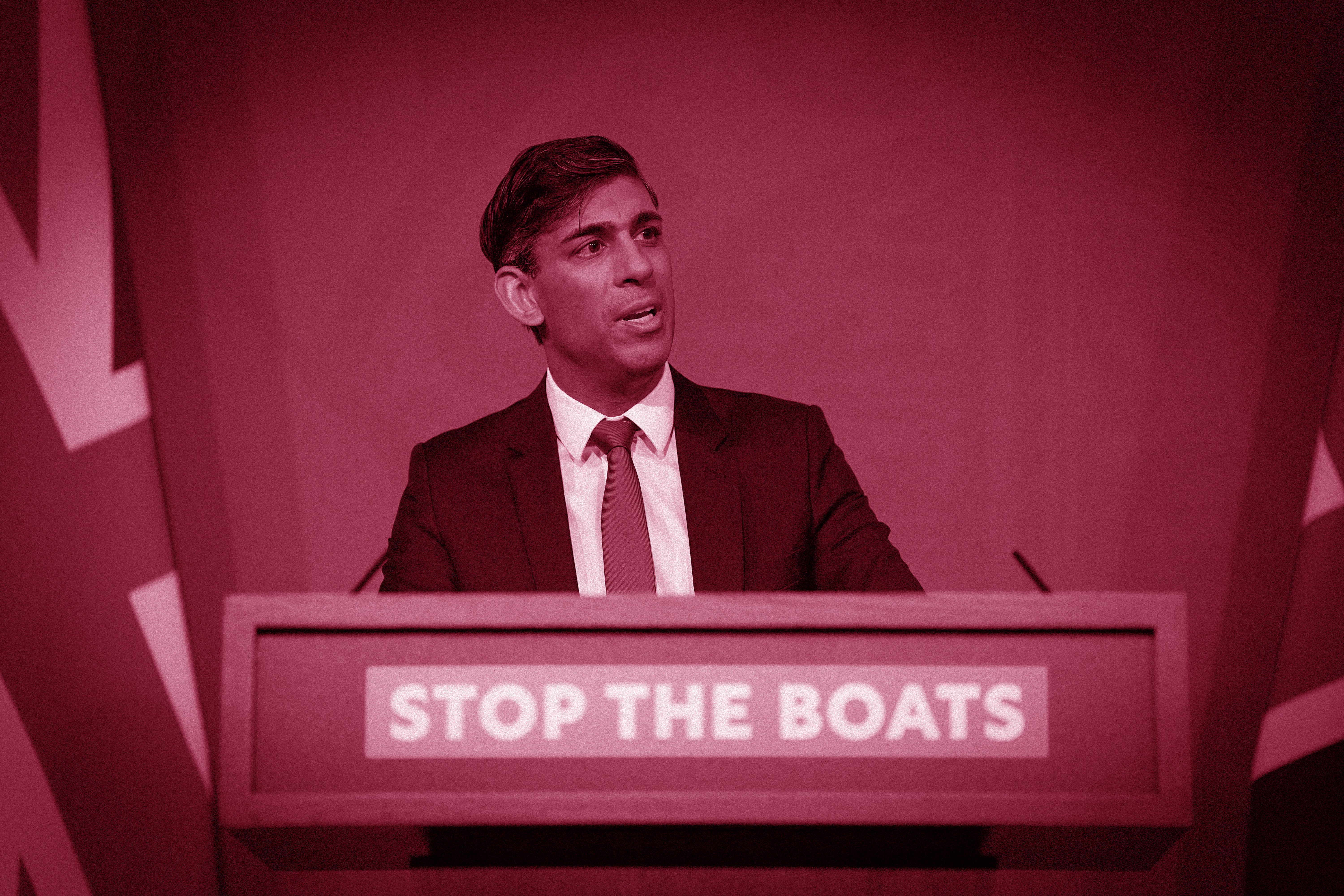Can Rishi move his Rwanda deal into the ‘Goldilocks zone’?
It needs to be not too hot for Tory moderates, and not too cold for the right-wingers. And of the two factions, it’s the former who may yet prove themselves the most dangerous opponents to the PM’s deportation bill, writes Andrew Grice


Rishi Sunak has won one battle, but he could still lose the war over the legislation he hopes will allow the government to send asylum seekers to Rwanda by next spring. Yet avoiding a humiliating Commons defeat hardly amounts to a great victory for Sunak, and his ducking and diving ahead of last night’s vote stored up more trouble for the later stages of the Safety of Rwanda (Asylum and Immigration) Bill.
The government’s majority of 44 was bigger than expected, but illusory. The right-wing, self-appointed keepers of the Tories’ soul abstained rather than voted against the government. Their bite did not live up to their noisy bark.
Sunak told them in Downing Street talks he was prepared to “tighten” the bill to make it “legally watertight”. Right-wingers assume this will relate to an individual’s right to challenge their deportation to Rwanda, insisting they did not oppose the measure because of what they regard as a firm promise.
To save face after their Grand Old Duke of York act, the pompous right-wingers will need to extract some concessions from Sunak. He might offer a tweak to the bill’s wording, but they will demand real change. If he doesn’t deliver, they will threaten to kill the bill at its third reading stage next month, and this time they would surely have to match their brave talk with action.
But if the prime minister makes real concessions, he will alienate the One Nation group of Tory moderates. Most of them backed Sunak for the leadership last year, but their instinctive loyalty is wearing very thin. They admit privately they have been too nice for their own good, are better organised than they have been for years and are flexing their muscles. I suspect they might become more of a threat to Sunak than the right-wingers who crave and hog the media spotlight.
The moderates, anxious to preserve the UK’s commitment to international law, are adamant the bill already goes as far as they are prepared to go. But it’s hard to see how Sunak can make concessions to the right that doesn’t further dilute the role of the European Court of Human Rights.
The One Nation group will now play the right at their own game of chicken and they have bigger numbers – about 100 – at their disposal. “We are not going to give an inch,” one moderate told me. If right-wingers table amendments to the bill, the moderates will propose some of their own, risking more parliamentary turmoil.
In this scenario, the One Nation group would have a better chance of defeating the government as they would have far more potential allies among opposition parties than the right (whose only likely bedfellows are the eight Democratic Unionists).
The moderates think they have an assurance from Sunak that the bill will not be changed. So he is in danger of disappointing one faction or the other and the path to getting his bill through remains very narrow. James Cleverly, the home secretary, admitted on Radio 4’s Today programme that the government needs to find a “Goldilocks zone” – tough enough to work, but legal and which keeps the Rwandan government on board (it wants to stick to international law). What Cleverly really meant was a landing zone that is not too hot for the moderates and not too cold for the right.
It won’t be easy, and Sunak’s relief at his escape will not last long. He is trapped in no man’s land between the Tories’ two warring tribes. Next time Tory whips will find it harder to win over rebels with their carrot-and-stick mix of threatening MPs with a February general election or losing the whip and promises like building a by-pass or other pressies for their constituencies.
Remarkably, Sunak told right-wing MPs he “inherited” the Rwanda scheme (conceived by Priti Patel), but that was feeble. He should have put it to sleep after the Supreme Court ruled it was unlawful, and has no one else to blame for elevating it into a totemic policy. More people (about 45 per cent) support than oppose it (about 30 per cent), but crucially, most do not think it will work as it won’t deter people from crossing the Channel – the whole point.
Whitehall sources tell me Home Office officials are searching desperately for other third countries to which asylum seekers could be sent while their claims are processed. Such a Plan C is hardly a sign of confidence that Sunak’s Plan B – the bill – will work.
While Westminster obsesses about the small print of legislation – which, even if passed by parliament, would face further challenges in the courts – all that voters will notice is more Tory chaos and in-fighting, and a prime minister failing to deliver his rash promise to “stop the boats”.
Join our commenting forum
Join thought-provoking conversations, follow other Independent readers and see their replies
Comments
Bookmark popover
Removed from bookmarks